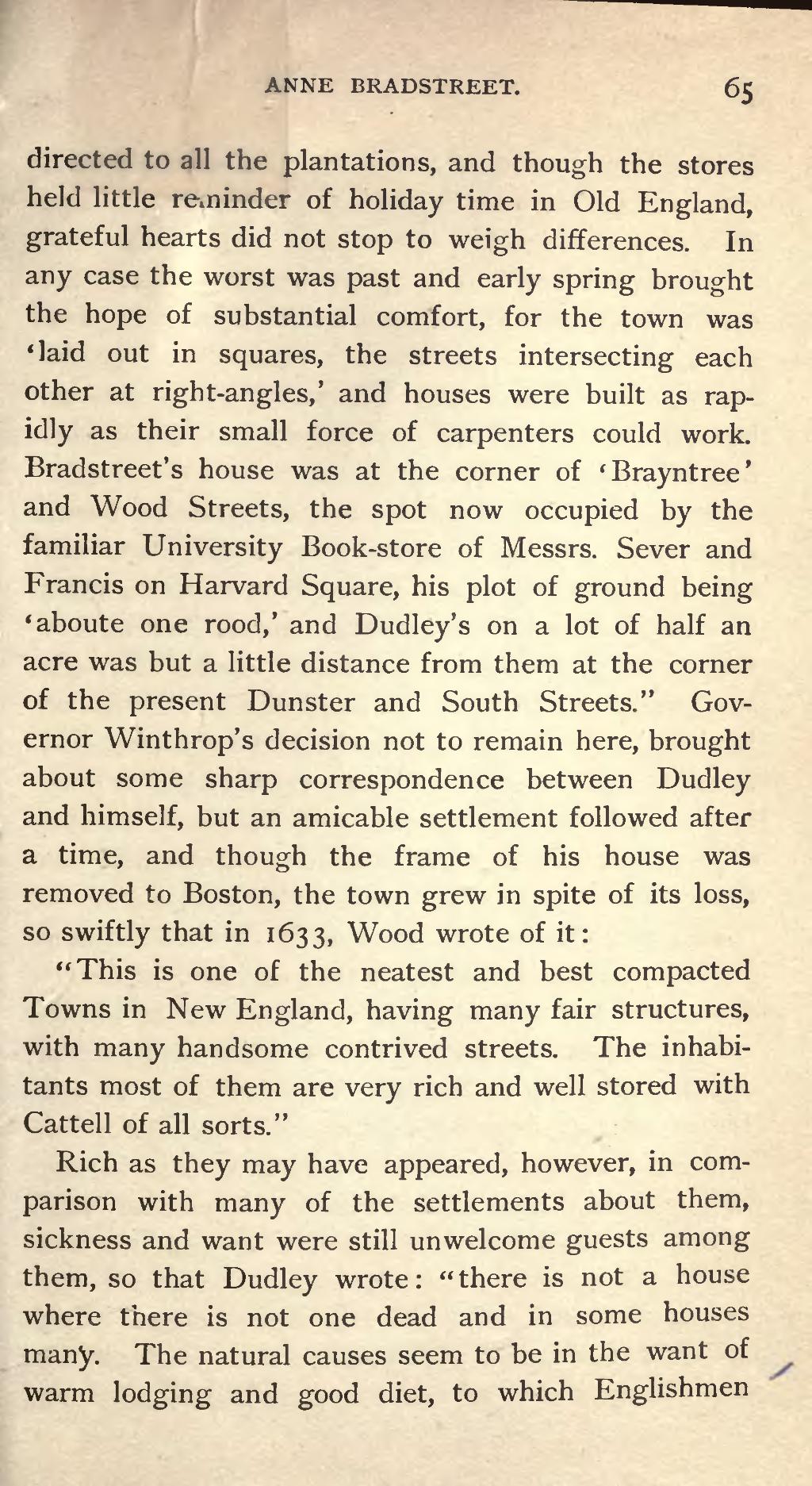directed to all the plantations, and though the stores held little reminder of holiday time in Old England, grateful hearts did not stop to weigh differences. In any case the worst was past and early spring brought the hope of substantial comfort, for the town was 'laid out in squares, the streets intersecting each other at right-angles,' and houses were built as rapidly as their small force of carpenters could work. Bradstreet's house was at the corner of 'Brayntree' and Wood Streets, the spot now occupied by the familiar University Book-store of Messrs. Sever and Francis on Harvard Square, his plot of ground being 'aboute one rood,' and Dudley's on a lot of half an acre was but a little distance from them at the corner of the present Dunster and South Streets." Governor Winthrop's decision not to remain here, brought about some sharp correspondence between Dudley and himself, but an amicable settlement followed after a time, and though the frame of his house was removed to Boston, the town grew in spite of its loss, so swiftly that in 1633, Wood wrote of it:
"This is one of the neatest and best compacted Towns in New England, having many fair structures, with many handsome contrived streets. The inhabitants most of them are very rich and well stored with Cattell of all sorts."
Rich as they may have appeared, however, in comparison with many of the settlements about them, sickness and want were still unwelcome guests among them, so that Dudley wrote: "there is not a house where there is not one dead and in some houses many. The natural causes seem to be in the want of warm lodging and good diet, to which Englishmen
